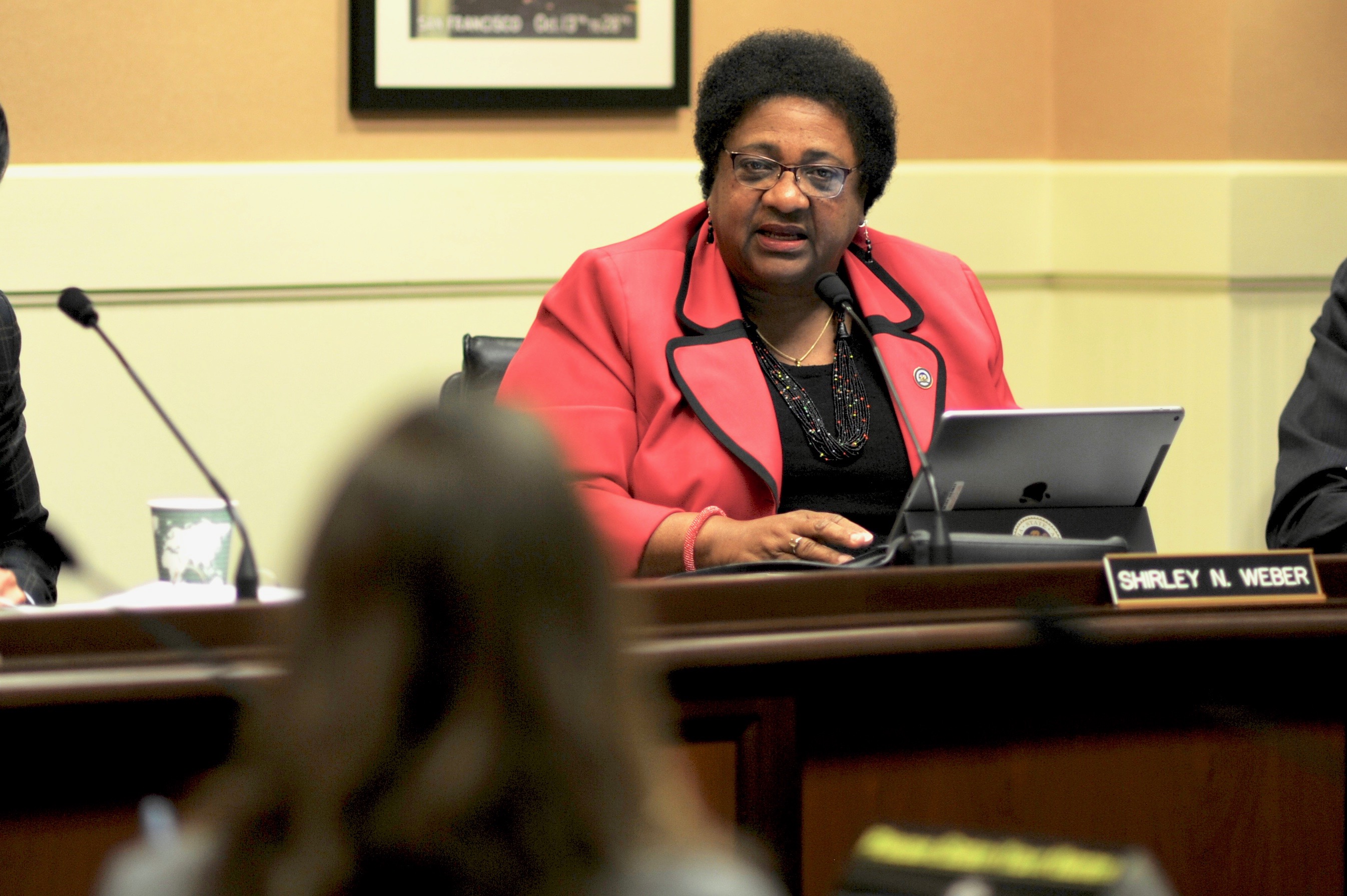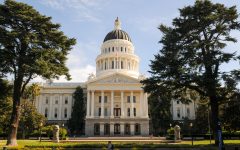
Assemblyman Reggie Jones-Sawyer. (Kevin Sanders for California Globe)
Veto Urged for Bill Extending CA Reparations Task Force
AB 2296 easily passed Assembly, Senate last month
By Evan Symon, September 13, 2022 12:30 pm
Groups that favor reparations for African-Americans in California, such as the Coalition for a Just and Equitable California, sent a letter to Gavin Newsom earlier this week urging him not to sign an upcoming bill that would extend the life of the task force from an end date of 2023 to an end date of 2024.
Assembly Bill 2296, authored by Assemblyman Reggie Jones-Sawyer (D-Los Angeles), would specifically remove set terms of office for task force members and would instead remove them whenever the appointing authority seems fit. The Task Force itself would also be allowed to set up subcommittees and advisory bodies to help complete their intended duties. Another year would also be given to allow more time to finish up their respective reports, with a revised Task Force end date of July 1, 2024.
Since the original bill setting up the reparations task force was signed into law in 2020, in which boundaries were set up allowing the future task force to document and look into issues surrounding slavery in California, as well as issue recommendations into what, if any, reparations would be given, many controversies have come up. Most notably, the decision to limit payouts to the descendants of slaves only rather than all black Californians and the initial report calling for reparations to be given divided many people, with the former tearing apart reparations supporters on the issue.
With more issues and questions over reparations arising, along with polls showing that the majority of citizens don’t support reparations to be given, Assemblyman Jones-Sawyer wrote AB 2296 to allow the task force more time to help complete the final reports.
“Black economic growth and prosperity have been critically hindered by racist policies aimed at suppressing African Americans even after end of slavery,” said Jones-Sawyer earlier this year. “I believe that State Legislators will be receptive of the report’s analysis, but remain true to their obligation of questioning approach, costs, and implementation. The Reparations Task Force should remain empaneled for another year to help guide, advise, and review any issues or questions that may arise. The need to have the Task Force available to furnish its experts to help with matters once the Legislature determines what, if anything, comes from these studies will be crucial to the success of this monumental step towards healing.”
While the bill was popular with many legislators, most Republicans, along with a few Democrats, waged a small opposition against the bill for several reasons, including many seeing the extension as unnecessary and the added year for the task force being a drain of state resources and funds. Ultimately however, the bill passed both houses last month, ending at 32-6 in the Senate and 59-13 in the Assembly.
A possible reparations task force extension into 2024
AB 2296 was at first seen as a smooth-sailing bill to be signed by Newsom. However, pro-reparations groups have since said that the bill will instead politicize the process with members let go at any time, and that if more time is given the more likely the task force’s recommendations will amount to nothing happening. Especially worrying for groups like Coalition for a Just and Equitable California is that the task force itself has not asked for more time, signaling that other factors are in play here.
“We’re hearing concerns that it’s not going to happen, that this is not going to result in anything,” said Coalition for a Just and Equitable California organizer Chris Lodgson. “This is why we do not need a delay of this work.”
Others noted that many are now coming out against the bill due to a delay of the final task force report giving those against reparations another year to prepare for a likely legal battle.
“A lot of people are against reparations,” explained legal adviser Richard Weaver to the Globe on Tuesday. “A years’ delay would absolutely help them pull out even more legal stops against reparations from being given. It’s a lot more time to comb over laws, gather evidence, and so many other things to stop this. The bill may help them, but it helps the other side too.”
AB 2296 is currently on Governor Newsom’s desk, awaiting to either be signed into law or vetoed.
- Bill to Require Law Enforcement Disclosure if AI Was Used To Help Write Reports - August 7, 2025
- Gov. Newsom Files FOIA Request To ‘Expose True Cost’ Of L.A. Federal Troop Deployment for Anti-ICE Riots - August 6, 2025
- California Redistricting: How Newsom’s Plan Will Demolish Hard Fought GOP Gains - August 6, 2025





I’d like to know which history book(s) say that slave plantations existed in California. I’m pretty sure I read history books stating the slave plantations were in the southern states NOT the western states. Why are we even having this discussion in California when it entered the union a free state and fought on the side of the union against the slave owning states of the south?
Walter,
You ask an excellent question about whether CA should hand out reparations
.
Walter, it is evident that you have not watched any of the hearings. If you had not commented, no one would know of your ignorance.
I’m sorry, but if you are still *struggling with slavery* I’m still struggling with when the Vikings invaded England in the 8th Century and enslaved my relatives. They stole our lands, burned our fields and assaulted our women, I blame all my current failures on Vikings
Then you should go after the ones who did that to your people.
I am fully aware of California’s history, its status as a free state when it entered the Union and the crucial role it played in financing the Union’s victory. Reparations to African American citizens for the damages done by slavery should not be considered for those harms. However, while de jure segregation was not practiced in this state, no knowledgeable citizen of this State can fail to acknowledge the economic harms done by extralegal practices such as
restrictive covenants, residential mortgage lining, the lack of banking facilities in historically black (and Latinx) neighborhoods and the placement of negatively affecting infrastructure such as oil and gas pipelines, maintenance yards and dumping sites as well as noxious private uses such as refineries, recycling facilities, slaughterhouses, etc and deliberate deferred maintenance of public streets, etc. These practices severely limited California’s black and brown citizens ability to acquire housing and/or to fully realize the benefits of cyclical real estate markets. These are the real harms that might justify redress. though not through cash payouts. Subsidizing mortgages by buying down the principle of a mortgage loan through a grant program, subsidized home improvement loans and a greater investment in provision of government services and neighborhood beautification are good steps and address the actual locus of generational economic harms. I should also be noted that these same harms were also done to the State’s Mexican American and Native American populations and these groups must be included in any economic reparations program.
This one proud State is now trying Putin’s economy here in CA. Un – fing – believable!!!
it’s no coincidence that the (D) legislature banned guns before trying to take taxpayers bank accounts (by an estimated $200,000.00 per taxpayer).